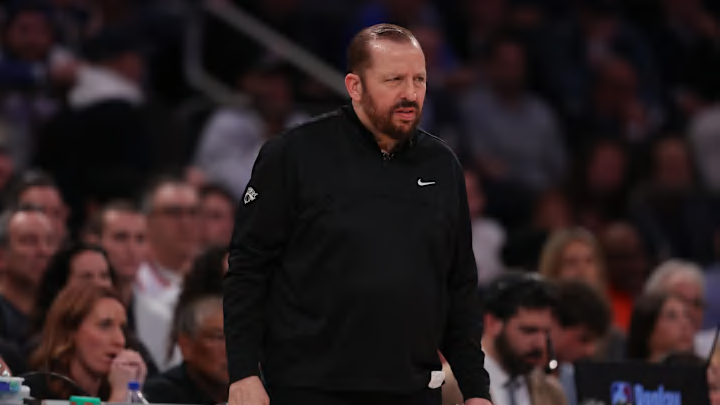In Game 4 against the Indiana Pacers, the New York Knicks stuck with a lineup that had shown promise in the previous outing. Mitchell Robinson started alongside Karl-Anthony Towns, continuing the “double big” approach that helped fuel their lone win of the series. Head coach Tom Thibodeau stood by the old adage: “If it ain’t broke, don’t fix it.”
But the moment Robinson was subbed out, the cracks started to show. New York’s momentum collapsed, and Indiana seized control — putting the Knicks in a daunting 3-1 series hole. The substitution that followed? Josh Hart, the ever-reliable hustle player, checked in. Except this time, his usual energy didn’t translate to production.
Hart finished with just five shot attempts, 11 rebounds, one assist, and five turnovers. Far from his usual efficient contributions, he appeared out of sync — and yet still played starter-level minutes.
“Just the hustle, making defensive transition, getting more continuity into the offense,” Thibodeau said postgame, when asked about sticking with Hart down the stretch over Robinson.
But the real issue? It wasn’t continuity. It was coaching.
Tom Thibodeau has been a problem for the Knicks
If Thibodeau’s logic was to ride the lineup that won Game 3 on the road, then abandoning it midgame — especially when it was producing — makes little sense. Despite starting from the bench, Hart played nearly 40 minutes, while Robinson, a defensive anchor, was relegated to the sidelines in critical stretches.
Thibodeau pointed to defense, turnovers, and rebounding as the deciding factors. Offense, he said, wasn’t the issue — after all, the Knicks scored 121 points. But were those excuses accurate?
Surprisingly, the Knicks outrebounded the Pacers, grabbing eight more offensive boards and three more defensively. So the rebounding was, in fact, good enough. The 17 turnovers, however, were a glaring issue — especially when the team only recorded 17 assists, resulting in a flat 1:1 assist-to-turnover ratio. Hart was responsible for nearly a third of those turnovers. Mitchell Robinson? Zero.
Knicks fans are beginning to grow restless with Thibodeau’s postseason tendencies — mainly, his reluctance to adjust or double down on what’s working. There’s no questioning Hart’s value; he’s the kind of player any team would love to have. But his passive offensive approach, particularly in a game where every possession mattered, disrupted the flow of the Knicks' attack. He doesn’t look to shoot. He doesn’t create his own shot. That’s simply not his role. But if the issue was really rebounding or interior defense, why not use your 7-footer in a must-win situation?
Now, the Knicks return to Madison Square Garden, trailing 3–1 in the series — a deficit only 13 teams in NBA history have ever overcome. The good news? They’re back home. The bad news? They’ve left themselves little room for error.
The stage is set. The pressure is building.
Only one question remains:
Can Tom Thibodeau stick to his guns — and finally make the right adjustments?
